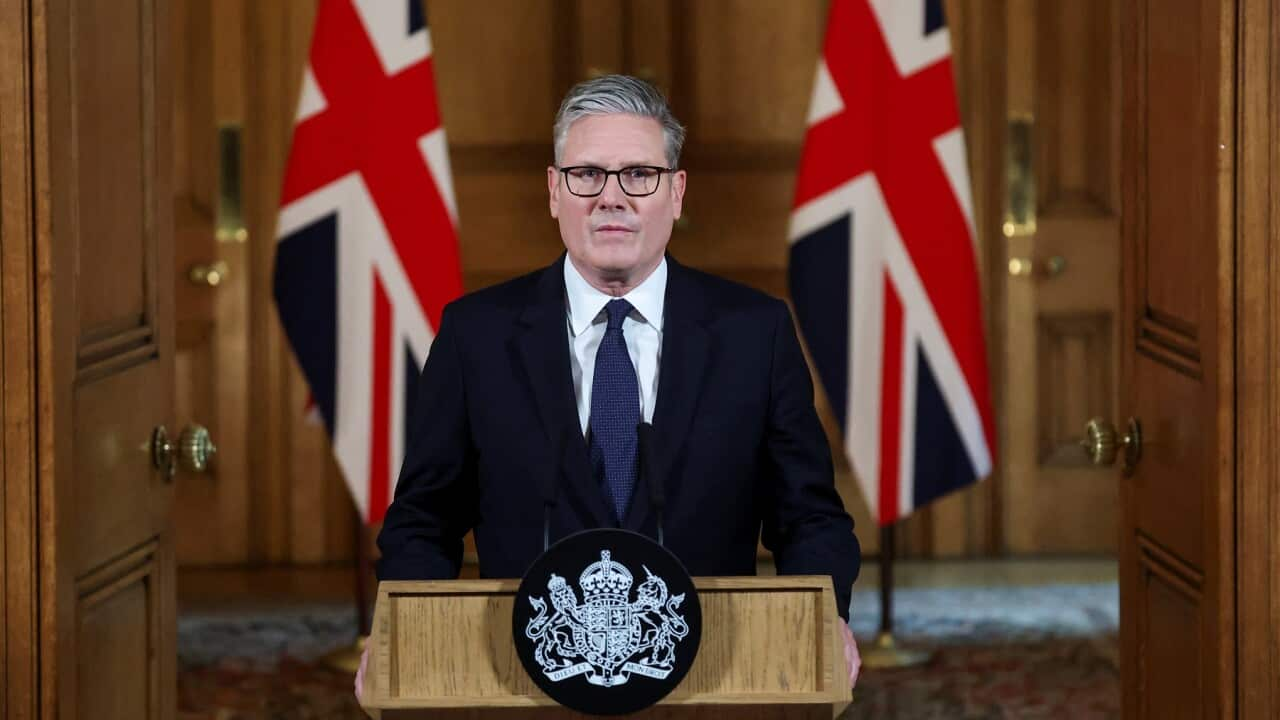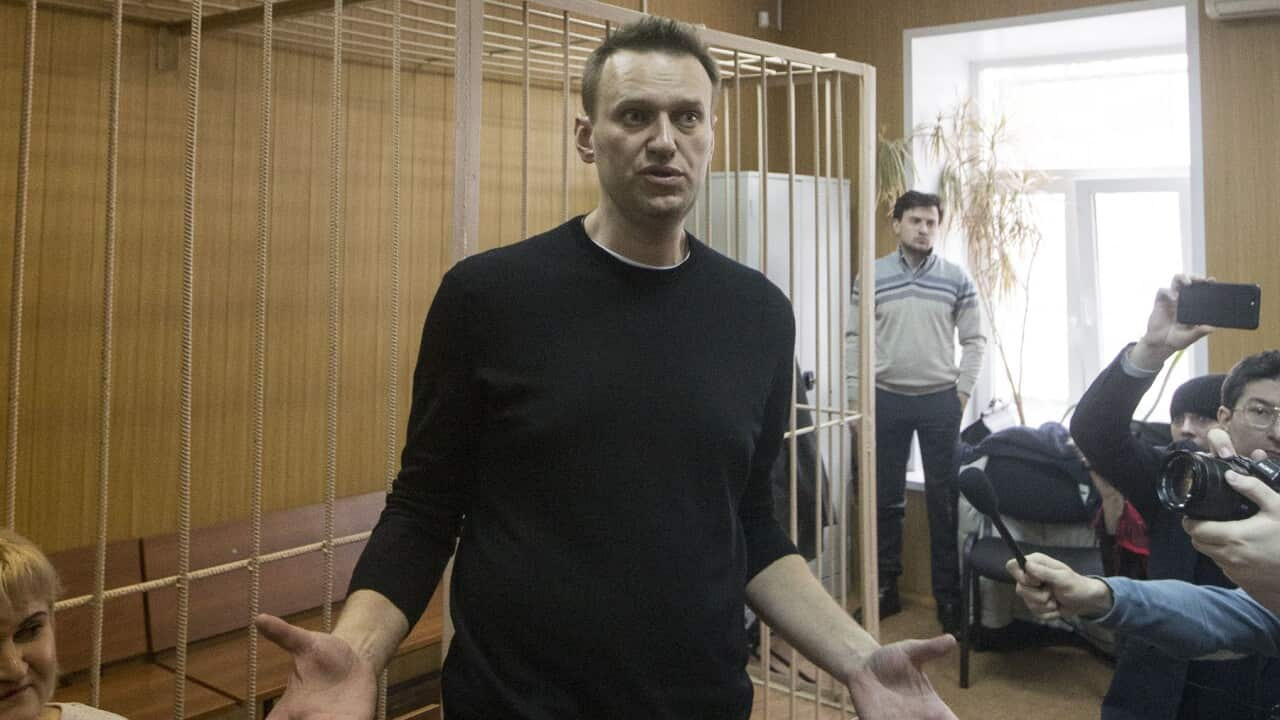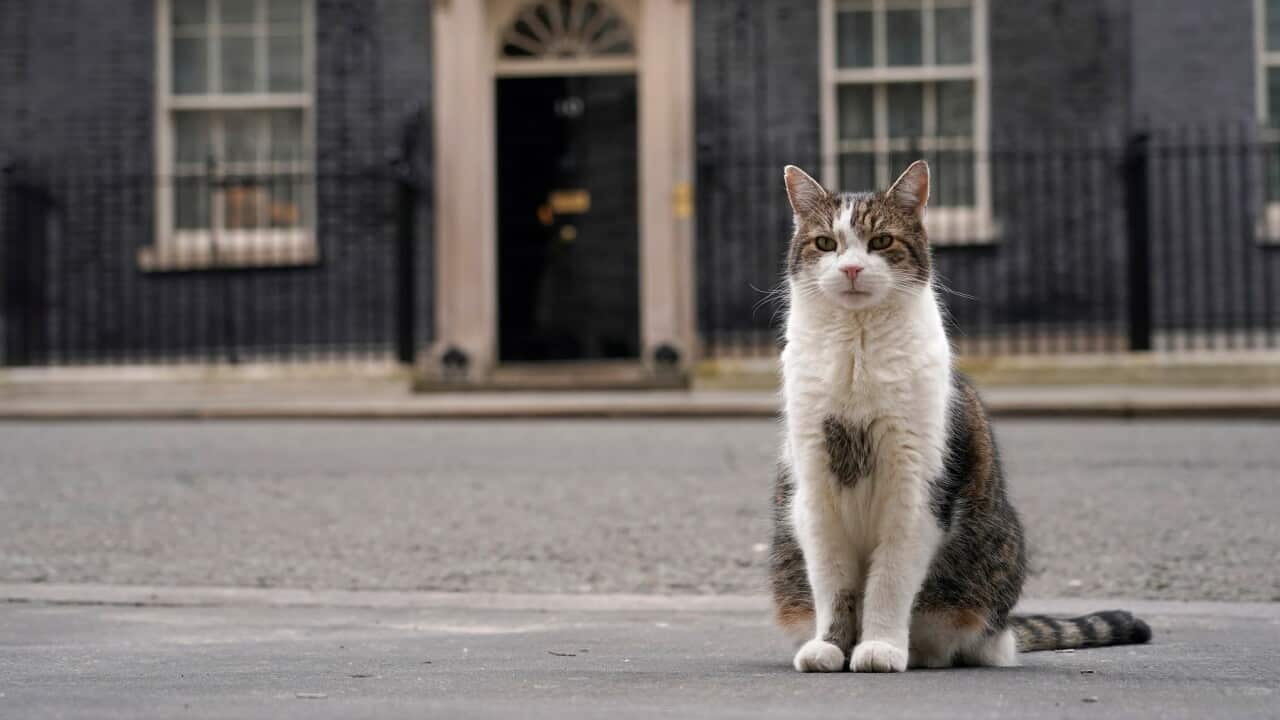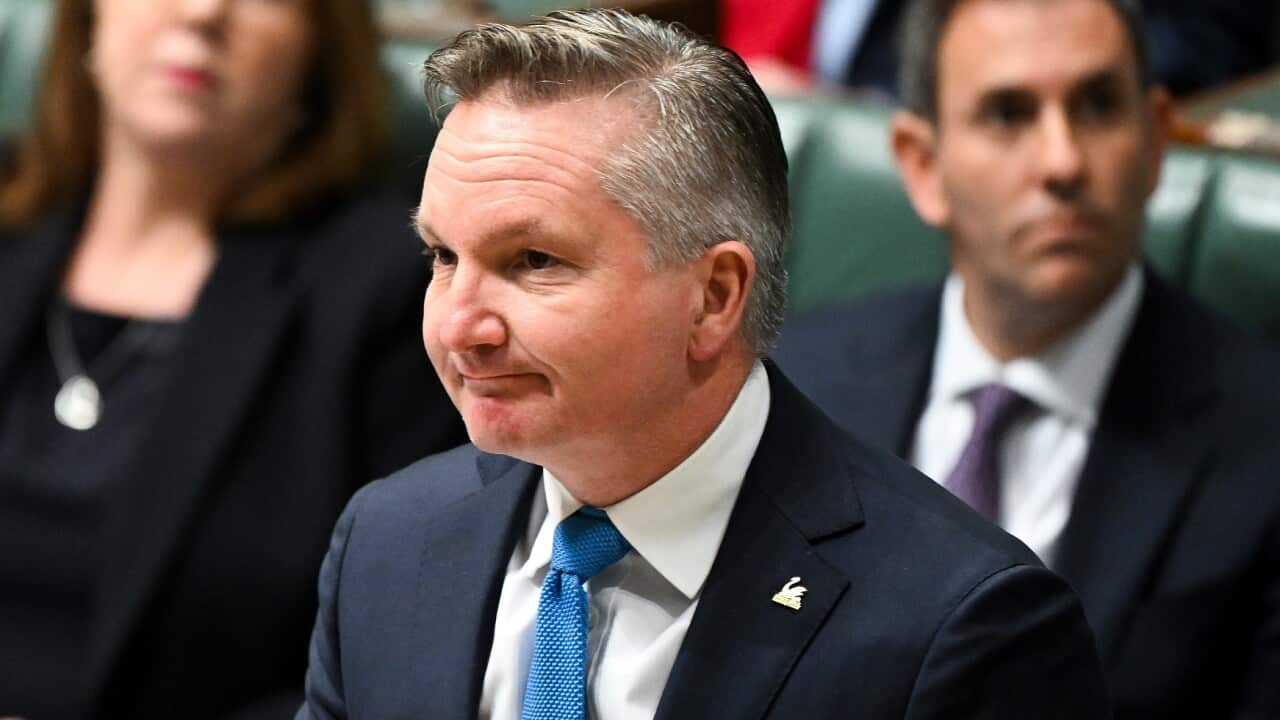Listen to Australian and world news, and follow trending topics with SBS News Podcasts.
TRANSCRIPT
First France, then the UK.
Prime Minister Keir Starmer says he has moved up the timeline for Britain to recognise a Palestinian state.
"With that (two-state) solution now under threat, this is the moment to act, so today as part of that process towards peace, I can confirm the UK will recognise a state of Palestine by the United Nations' General Assembly in September unless the Israeli government takes substantive steps to end the appalling situation in Gaza, agree to a ceasefire and commit to a long-term sustainable peace."
French President Emmanuel Macron became the first G7 leader to announce plans to recognise Palestinian statehood at the upcoming UN General Assembly in New York in September.
France is co-chairing a UN conference in New York this week to encourage other countries to follow its example.
French Foreign Minister Jean-Noël Barrot says France wants to keep the prospect of a two-state solution alive.
"We wanted to hold the conference as soon as possible because the clock is not on our side. The situation in Gaza is horrendous and the civilian population in Israel and the Palestinian are paying the horrible price for the terrorist attacks on the 7th of October and the war that is being waged by Israel in Gaza."
Both Israel and its closest ally, the United States, have refused to participate in the conference in New York, which is being attended by representatives of 125 countries.
United Nations Secretary-General Antonio Guterres says the international community must act to support the movement for peace in the Middle East.
"We know the central question for Middle East peace is implementation of the two-state solution. My central question to those who stand in the way is this. What is the alternative? A one-state reality. Where Palestinians are denied equal rights and forced to live under perpetual occupation and inequality, or a one-state reality where Palestinians are expelled from their land, that is not peace. That is in accordance with international law, and that is not acceptable."
More than 140 countries recognise Palestinian statehood - that's more than 70 per cent of the UN's member states.
Progress on a two-state solution - the plan for the creation of a Palestinian state to exist alongside Israel - stalled after momentum was gathered and then lost with the 1993 Oslo Accord, the negotiations at Camp David in 2000, and then in Taba the following year.
Saudi Arabia is co-chair of the conference in New York.
The country's foreign affairs minister, Prince Faisal bin Farhan Al-Saud, says the root cause of the conflict in Gaza must be addressed for true peace - and that involves a broader political solution beyond a ceasefire.
"Normalisation with Israel can only come through the establishment of a Palestinian state. That position remains the same. And it is based on a strong conviction that only through the establishment of a Palestinian state and only through addressing the legitimate rights of the Palestinian people to self-determination, can we have sustainable peace and real integration in the region."
The US - along with many European nations - has said it would only recognise a Palestinian state as part of moves towards a long-term resolution to the conflict.
Australia has taken a similar position.
Prime Minister Anthony Albanese says there are no immediate plans to recognise a Palestinian state.
"What I have said is that the timeline is not what we're looking at. What we're looking at circumstances where recognition will advance the objective of the creation of two states. My entire political life I have said I support two states: the right of Israel to exist within secure borders; and the right of Palestinians to have their legitimate aspirations for their own state realised. That's my objective - not making a statement. Not winning a political point."
Like with France's announcement last week, Palestinian officials have welcomed the UK's position on Palestinian statehood, while Israeli Prime Minister Benjamin Netanyahu repeated remarks that such an act rewards terror following the Hamas attack in Israel on October 7, 2023.
US President Donald Trump says he has similar concerns.
"We'll let you know where we are, but I am not in the camp. Because if you do that, you really are rewarding Hamas, and I'm not about to do that."
Meanwhile, the situation of hunger and malnutrition on the ground in Gaza has grown more acute.
Mother Jihan Al-Quraan in Nuseirat refugee camp in the central Gaza Strip says hunger is her daily reality.
"Even the aid doesn't reach us all. Yesterday, people said there was aid, so I went running. I collected the pasta from the ground. I started to collect the scattered pasta to cook for my children, in case I couldn’t get food from the soup kitchen. I collected it from the sand, from the dirt and then there was shooting, A quadcopter and the tank started firing at us."
In its latest alert and update, the leading international authority on food crises says they face logistical challenges with gathering the definitive evidence to officially declare famine in Gaza; but after nearly 22 months of war, the trajectory is clear.
Jean Martin Bauer is the director of World Food Program’s food security and nutrition analysis.
"The previous IPC analysis was done in May 2025, and what it said was that there was a risk of famine for the Gaza Strip. Since May, the situation for food security and nutrition has gotten a lot worse. What the data tells us is that two of the three indicators that we monitor have breached famine thresholds. The three indicators that we look at include, number one, household food deficits. Number two, global acute malnutrition. And number three, mortality."
He says the official declaration of a famine is a strictly defined process that requires painstaking work.
"Twenty thousand children have been admitted for treatment for acute malnutrition between April and mid-July, and 3,000 of them were acutely malnourished. You would see more children be malnourished, you would see additional mortality. The situation right now is a famine which is extremely rare. Since the IPC system has existed, there have only been four famines in this century. So, that's been Somalia in 2011, South Sudan twice. And then, Sudan, which is also ongoing now. So, this tells you that these are very rare, very serious events. And we need to respond now at scale."
Israel has repeatedly denied that there is starvation in Gaza.
Israeli officials have instead blamed either UN inefficiency - or Hamas for aid not reaching people in areas it has claimed to control for much of the war.
Gathering information on what is happening on the ground in Gaza is challenging, with international media blocked by Israel from reporting from within Gaza.
Two leading human rights groups in Israel - B'Tselem and Physicians for Human Rights Israel - have now concluded the war in Gaza amounts to a genocide against Palestinians, citing the restriction on aid.
Executive Director of B'Tselem, Yuli Novak, says the weight of evidence has given them no option.
"Israel is committing genocide against the Palestinians in the Gaza Strip. For the past 22 months we have witnessed unprecedented levels of civilian killings of deliberate starvation, forced mass displacement and the total destruction of most infrastructure necessary for human and social existence."
Israeli Ambassador to the US, Yechiel Leiter, has told CNN he completely rejects that assessment.
"And we absolutely condemn these reports, which are fallacious. Anybody is welcome to come and see the amount of aid that we're pouring into Gaza. And again, I want to reiterate, we said about the people wanting to stay in Gaza. Anybody wanting to stay is welcome to stay. But why keep them in a siege - and condemn Israel for making a siege. We don't have a siege. 39,000 by the way have left since the beginning of the war through Israel. And if they want to leave temporarily to get out of this mess that Hamas has imposed on them. We're going to facilitate that. The same way we facilitate aid coming in, we're going to facilitate those who want to leave out."













